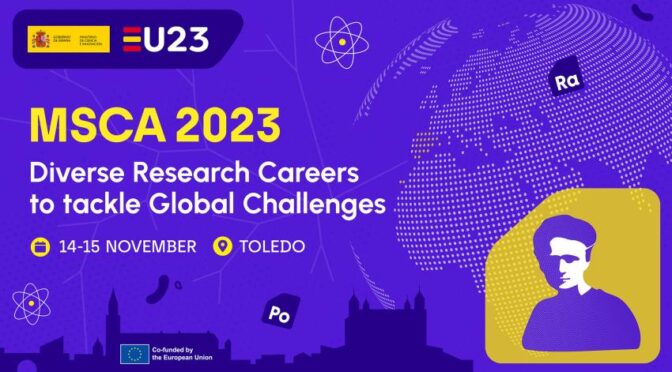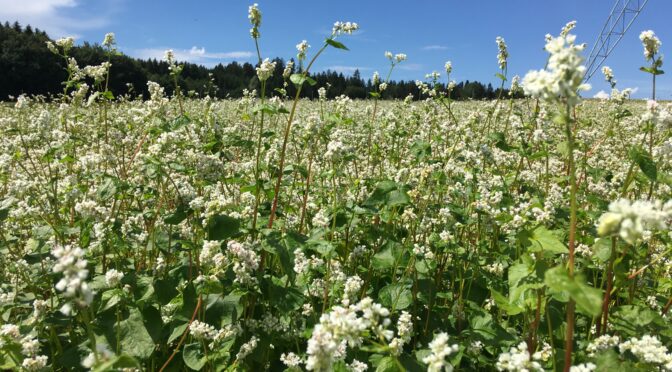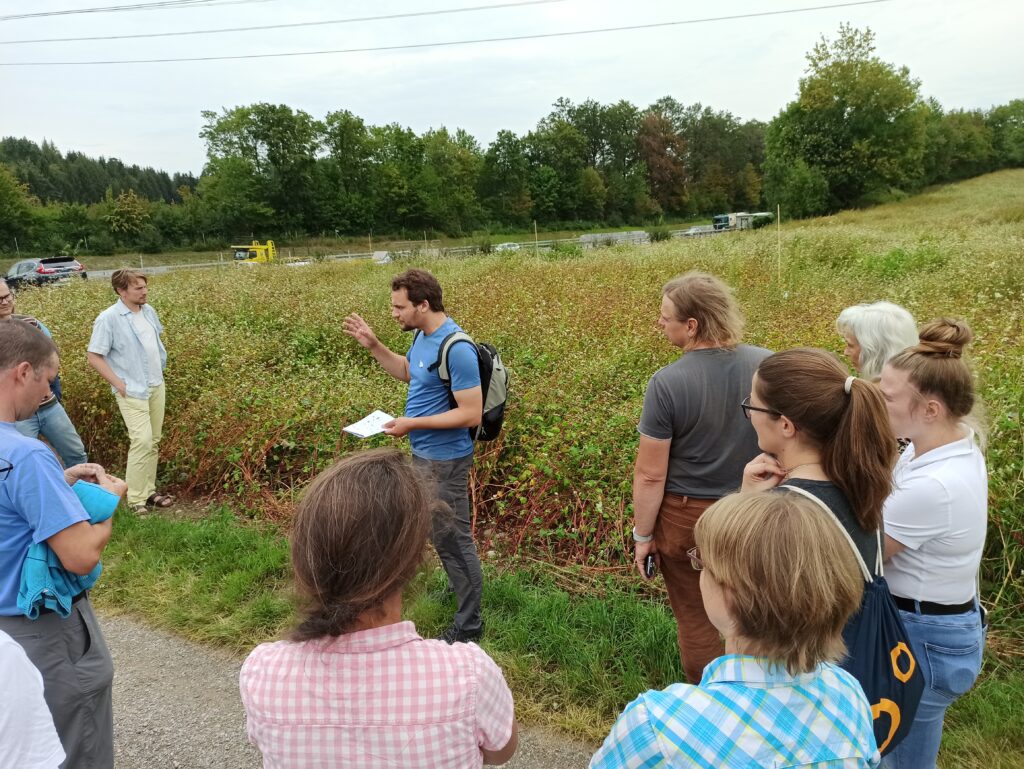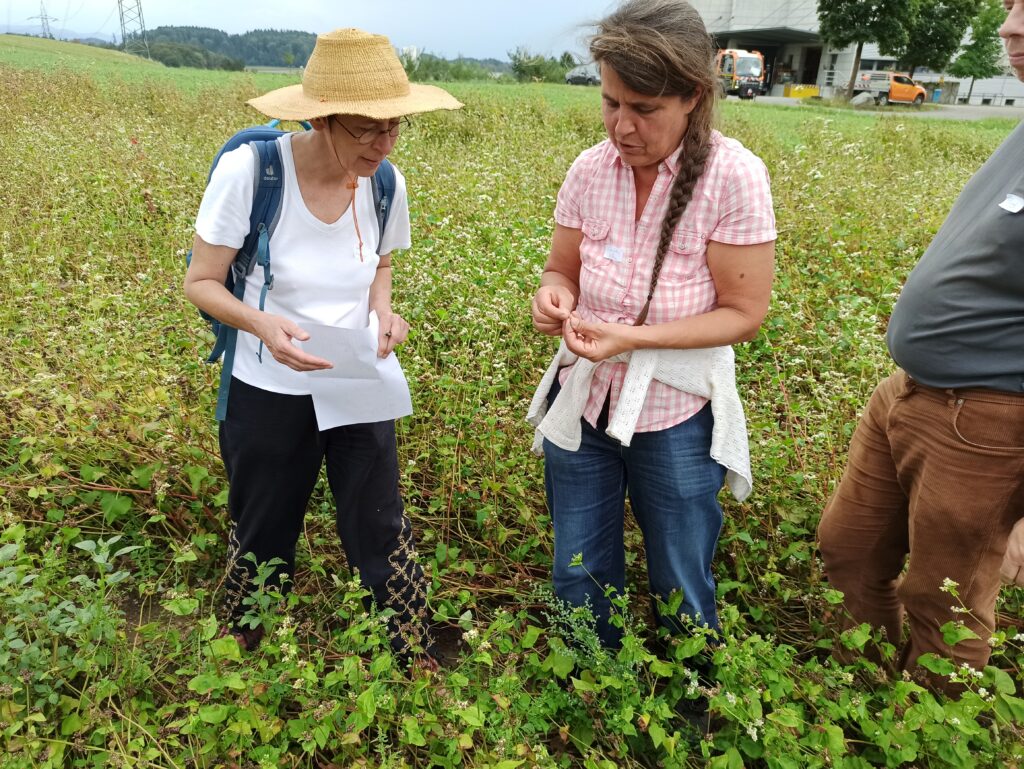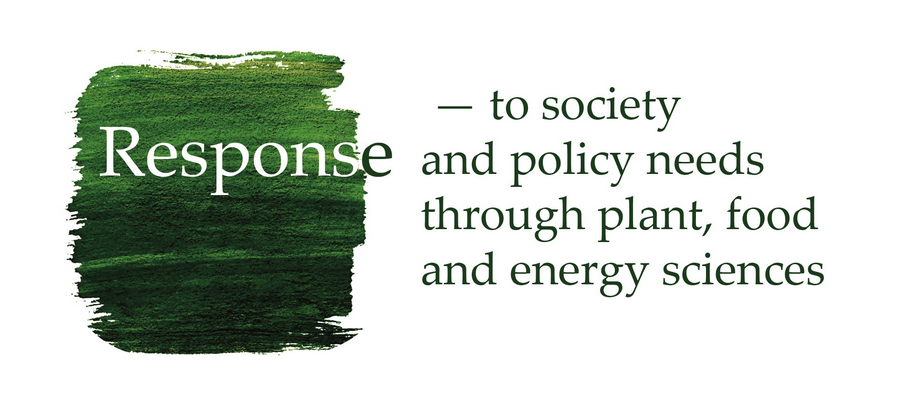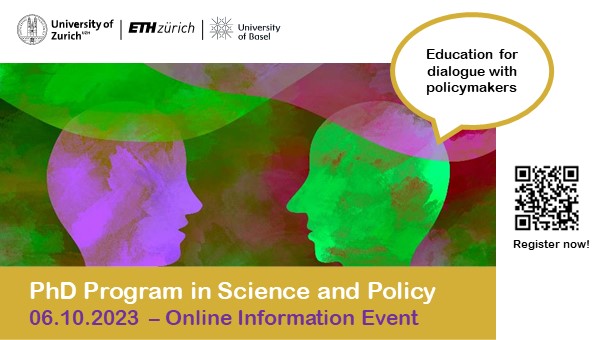Response Doctoral Program
Im Rahmen der Doktorarbeit von Fabian Hess (ETH Zürich) zum Thema «Erschliessung genetischer Ressourcen von Buchweizen zur Diversifizierung der Schweizer Landwirtschafts- und Ernährungssysteme», die u.a. von ProSpecieRara mitbetreut wird, fand im August 2023 ein erster “Fachtag Buchweizen” statt.
Am Fachtag hat sich eine äusserst vielfältige Gruppe zusammengefunden, um sich gemeinsam vertieft mit dem Buchweizen auseinanderzusetzen und über die Chancen und Herausforderungen entlang der Wertschöpfungskette zu diskutieren.
Dieser sehr erfolgreiche Fachtag ist Teil des aktuellen und zukünftigen Engagement von ProSpecieRara, die Buchweizenvielfalt für die Praxis nutzbar zu machen.
Der umfassende Online-Artikel zum Fachtag befindet sich hier.
Diese Veranstaltung wurde geleitet von Fabian Hess (Doktorand an der ETH Zürich). Fabian Hess ist Stipendiat im Doktorandenprogramm RESPONSE (DP) ” RESPONSE – to society and policy needs through plant, food and energy sciences”, das durch das Forschungs- und Innovationsprogramm Horizon 2020 der Europäischen Union finanziert wird. Dies geschieht im Rahmen des Marie-Skłodowska-Curie-Fördervertrags Nr. 847585.
Die Fotos wurden zur Verfügung gestellt von ProSpeciaRara und Michelle Nay (Agroscope).




